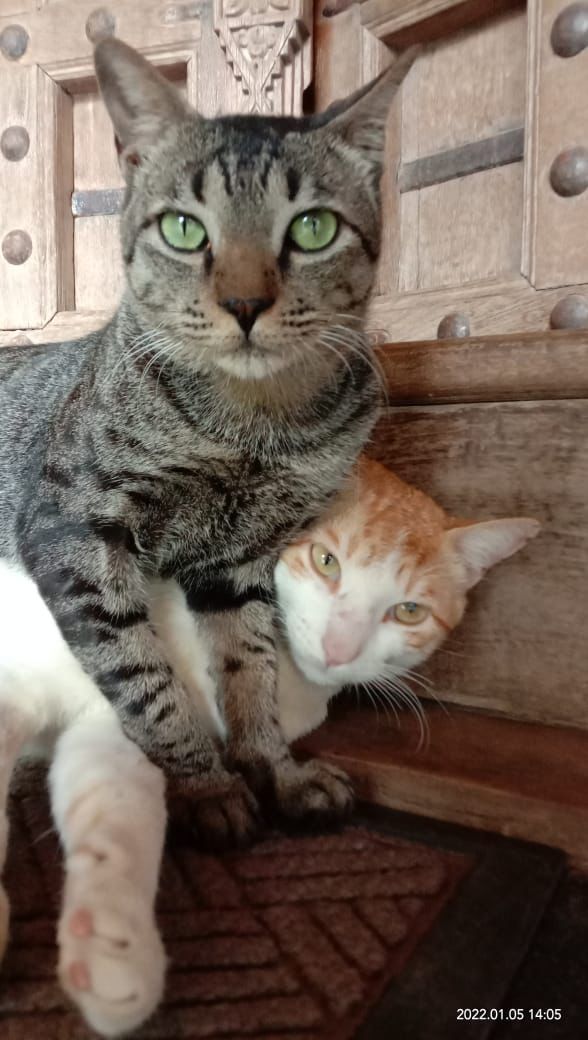6 WAYS NEUTERING BENEFITS ANIMALS

Photo: Vaishnavi Shankhwalkar
There are more than 200 million stray dogs and 480 million stray cats in the world. There is a fierce battle for existence as a result of shortages of resources such as food and territory. Fights frequently break out among strays for these resources, and if their injuries are not treated, they suffer a life of struggle and misery. Every stray or companion animal that is neutered leads to fewer puppies or kittens being born to a difficult life on the streets.
Neutering also decreases territorial disputes, disease and infection spread, and it promotes resource distribution. Moreover, it is a type of preventative healthcare.
Here are a few ways how neutering benefits street animals as well as companion animals:
Photo: Anipixels.com
Longer Life
A female cat or dog’s chances of developing breast cancer are significantly decreased by spaying her before her first estrous cycle (i.e., before they reach sexual maturity), and the risk of developing uterine, ovarian, and uterine infection, which is frequent in unspayed females, is completely removed.
Male dogs and cats should be neutered to reduce the risk of testicular cancers and prostate issues. Moreover, neutering reduces the risk of hernias and perianal tumours, which are frequently seen in older, unneutered dogs. Because neutered cats are less prone to roaming around, there is far less risk of infections spreading through fighting and bite abscesses.

Photo: Shalmali Chaudhari
Curbs Overpopulation
Because there are too many dogs and cats on the streets, most countries are forced to euthanise them or ignore their difficult lives. Spaying or neutering your companion animal or neighbourhood street animals will contribute to reducing the number of animals in need of care. This helps make better use of shelter resources and allocate resources to look after the well-being of the animals that already exist.
No Heat Cycles
The heat cycle lasts 21 days twice a year, in dogs and 3-15 days thrice or more times a year in cats. When a female is in heat, she frequently cries nonstop, displays anxious behaviour and attracts uninvited male animals.These issues are eliminated by spaying the animal.
Reduced Risk of Injuries
The chance of animals acquiring infections or suffering injuries when roving is reduced by neutering. According to surveys, up to 85% of dogs hit by cars are not neutered. Male outdoor cats that haven’t been neutered have been found to live less than two years on average. Unneutered cats fight much more frequently than neutered cats, and feline immunodeficiency syndrome is transmitted through bites.

Photos: Anipixels

Reduced Spraying/Marking
The likelihood of urine marking is higher in unneutered dogs than in neutered dogs. Although female dogs can engage in marking behaviour, male dogs are more likely to do it. Your dog’s urine marking should be lessened and, in some cases, eliminated after spaying or neutering.
The simplest option for cats is to neuter them by 5 months of age before the issue begins because the urge to spray is quite strong in those who are not neutered. 90% of all marking problems are resolved by neutering cats, even those that have been doing it for some time.
Less Chances of Human Animal Conflict
Large populations of stray animals living in densely populated urban areas face terrible conditions and come into conflict with people. Animals who have undergone spaying or neutering typically exhibit less hostility and troublesome behaviour towards humans. Non-neutered animals often exhibit greater aggression, engage in more physical conflict, and bite more frequently.
STREET BRIGADE TO THE RESCUE!
Do you want to lend a hand towards helping the street animals in your area lead happier lives? Earth Brigade Foundation’s animal welfare wing, Street Brigade, is here to assist you! Get in touch with us with your concerns today at director@earthbrigadefoundation.org or WhatsApp us on +91 9820228605.
